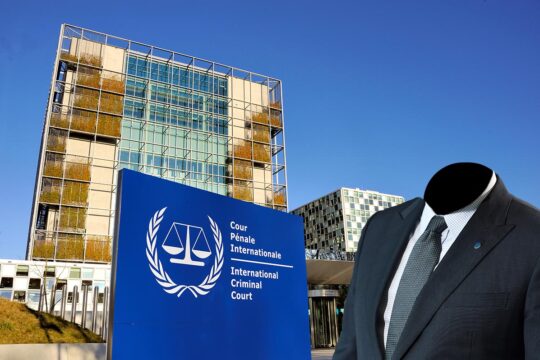The death rate among dissidents in Chadian dictator Hissene Habre's jails dwarfed the proportion of Americans who didn't survive the Japanese prisoner of war camps, his trial in Senegal heard Friday.
The 73-year-old, who fled to Dakar after being deposed in 1990, is being prosecuted in his adoptive country for war crimes, crimes against humanity and torture during eight years of repression.
His trial this week has heard about the conditions for political prisoners during his brutal regime and the extent to which he was responsible for their treatment.
Patrick Ball of the California-based Human Rights Data Analysis Group said he had calculated the mortality rate of political prisoners from 1985 to 1988 using reports completed by Habre's feared secret police.
The daily rate fluctuated between 1.3 and 4.5 times as much as that of American World War II POWs in Japan, and was 90 to 400 times that of Chad's non-political prisoners, he said.
Ball mounted a robust defence of his method under cross-examination, but added that he wasn't prepared to speculate about a possible link between the high death rate and the culpability of the regime.
Earlier in the week Mahamat Hassan Akabar, president of a commission into atrocities committed under Habre, had told the court the number of Chadians killed far exceeded the frequently-quoted estimate of 40,000.
He went on to describe the hellish conditions under which regime opponents, real or perceived, were incarcerated by the Documentation and Security Directorate, described as "the eyes and the ears of the president".
But Habre's court-appointed lawyers sought to play down the dictator's role as they questioned the expert, arguing that poor prison conditions were to be expected in the impoverished country.
"When a state cannot feed its children nor send them to school, do you think building four-star prisons would be the priority?" a member of Habre's legal team asked, highlighting NGO reports on the parlous conditions in jails across west Africa.
Once dubbed "Africa's Pinochet", Habre has been in custody in Senegal since his arrest in June 2013 at the home he shared in a plush neighbourhood of Dakar with his wife and children.
He doesn't recognise the authority of the African Union-mandated court and has refused to cooperate with his trial, forcing the judges to appoint lawyers to defend him.
str-sst/ft/ach
Ball


